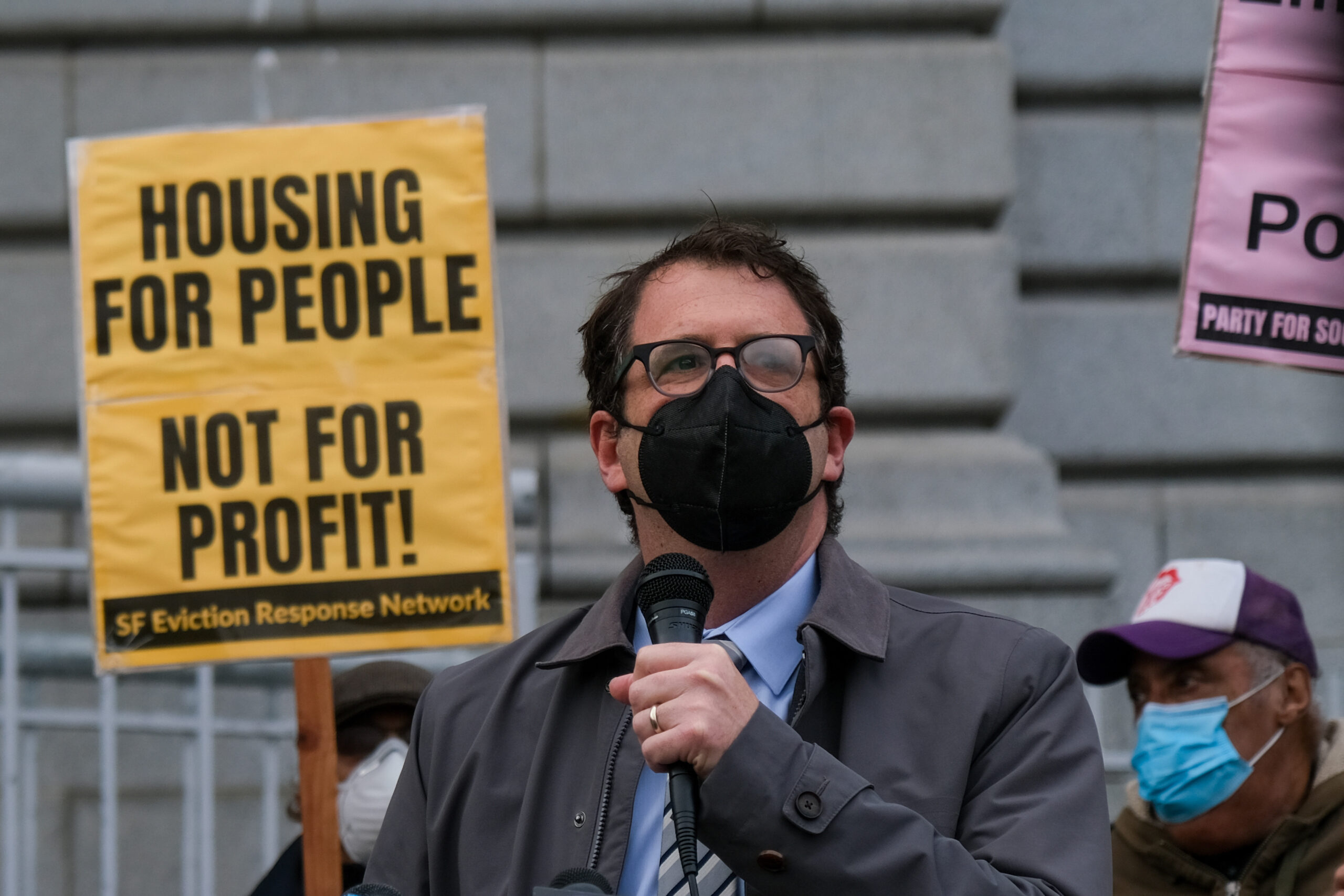Housing providers in San Francisco have evicted hundreds of formerly homeless people in the past few years, often cycling them back through the city’s shelters and onto a waitlist to repeat their journeys through the affordable housing pipeline.
In all, providers of permanent supportive housing—low-income housing with services geared at formerly homeless tenants—have formally evicted 774 people since 2018, and many more people were served eviction notices, the Department of Homelessness and Supportive Housing revealed at a Monday hearing.
Called by Supervisor Dean Preston, the hearing illuminated a conundrum the city finds itself in as it labors to place homeless individuals with housing providers that are facing their own set of challenges, particularly after Covid.
Housing providers who spoke at the meeting, such as the Tenderloin Housing Clinic and Delivering Innovation in Supportive Housing (DISH) SF, claimed they are owed hundreds of thousands of dollars in back rent while they manage property damage and nuisances caused by some tenants, who may be suffering from acute mental illness or other challenges.
But the hearing also demonstrated the fragility of over 10,000 permanent supportive housing residents, many of whom said they have little recourse to appeal unjust evictions and are at the mercy of large housing corporations that provide little support.
Some tenants who spoke at the meeting said that they were targeted by landlords after reporting unsanitary and unsafe conditions such as rodent and insect infestations. Others called to attention the damaging effects of living in fear of losing their housing.
“Since being evicted. I’ve been sexually assaulted twice. I’ve been nearly killed. I’ve been beat over the head,” said Pauline Levinson, a former tenant of Tenderloin Housing Clinic at the Jefferson Hotel.
Preston suggested that the city cover outstanding rent for people in permanent supportive housing while providing more resources for people on the brink of returning to homelessness.
“We shouldn’t be evicting anyone for nonpayment right now,” Preston said.
Emily Cohen, communications director for the Department of Homelessness and Supportive Housing, pointed to recent investments in the retention of case managers at the buildings as well as nearly $4 million in distributed emergency rental relief as measures meant to prevent evictions.
Providers said they are sometimes ill-equipped to care for people who are admitted into their buildings as part of the city’s prioritization process, called “coordinated entry,” which ranks candidates for housing based on their history with homelessness and other factors.
Homeless advocates and housing providers have both criticized the coordinated entry process for being overly confusing and for placing people into facilities where they are unsupported.
A large portion of the city’s total overdose deaths have occurred in supportive housing buildings, and some tenants have complained that their buildings have become hubs for drug activity.
The coordinated entry program is mandated by the federal government, but San Francisco is in the process of tinkering with its process with hopes of making it more effective.
The Department of Public Health pointed to a program called Permanent Housing Advanced Clinical Services, which formed in 2022 and is intended to bring behavioral health services and medical care to the front door of the city’s supportive housing tenants.
But the department has yet to provide outcomes for the program, which launched with a $7.8 million budget in March 2022.
Pointing to the failures of the coordinated entry program and the lack of “support” for people living in supportive housing, Preston questioned whether the program is having its desired effect.
“I’m not hearing a lot of change as a result of that,” Preston said. “It’s not a surprise that you’re seeing the problems that you’re seeing.”
